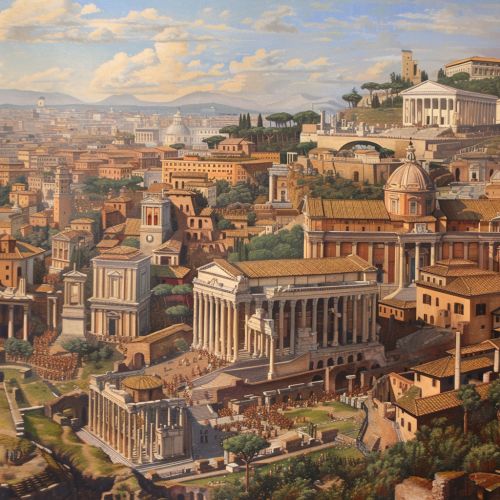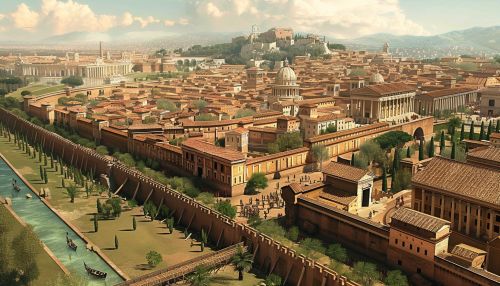Ancient Romans
Ancient Rome: Origins and Foundation
Ancient Rome was a civilization that originated on the Italian peninsula in the 8th century BC. According to legend, Rome was founded by Romulus, who became its first king after killing his brother Remus in a dispute over where to locate the city.


The Roman Republic
The Roman Republic was established in 509 BC, following the overthrow of the last Roman king, Tarquin the Proud. The Republic was characterized by a system of government in which power was shared between elected officials known as consuls and a legislative assembly.
The Roman Empire
The transition from a republic to an empire began in 27 BC when Caesar's adopted heir, Augustus, was granted the title of emperor by the Senate. The Roman Empire was marked by autocratic rule, military expansion, and a period of peace and prosperity known as the Pax Romana.
Society and Culture
Roman society was highly stratified, with a clear distinction between the ruling patrician class and the lower plebeian class. The Romans made significant contributions to art, architecture, literature, law, and engineering. Their legacy includes the Roman architectural styles, the Latin language, and the Roman legal system.
Decline and Fall
The decline and fall of the Roman Empire is a complex topic, with many contributing factors. These include economic instability, military decline, and internal corruption. The traditional date for the fall of the Roman Empire is 476 AD, when the last Roman Emperor, Romulus Augustulus, was deposed by the Germanic king Odoacer.
Legacy of Ancient Rome
The legacy of Ancient Rome is profound and far-reaching. Its influence can be seen in the modern world in areas such as government, law, language, architecture, engineering, and the arts.
